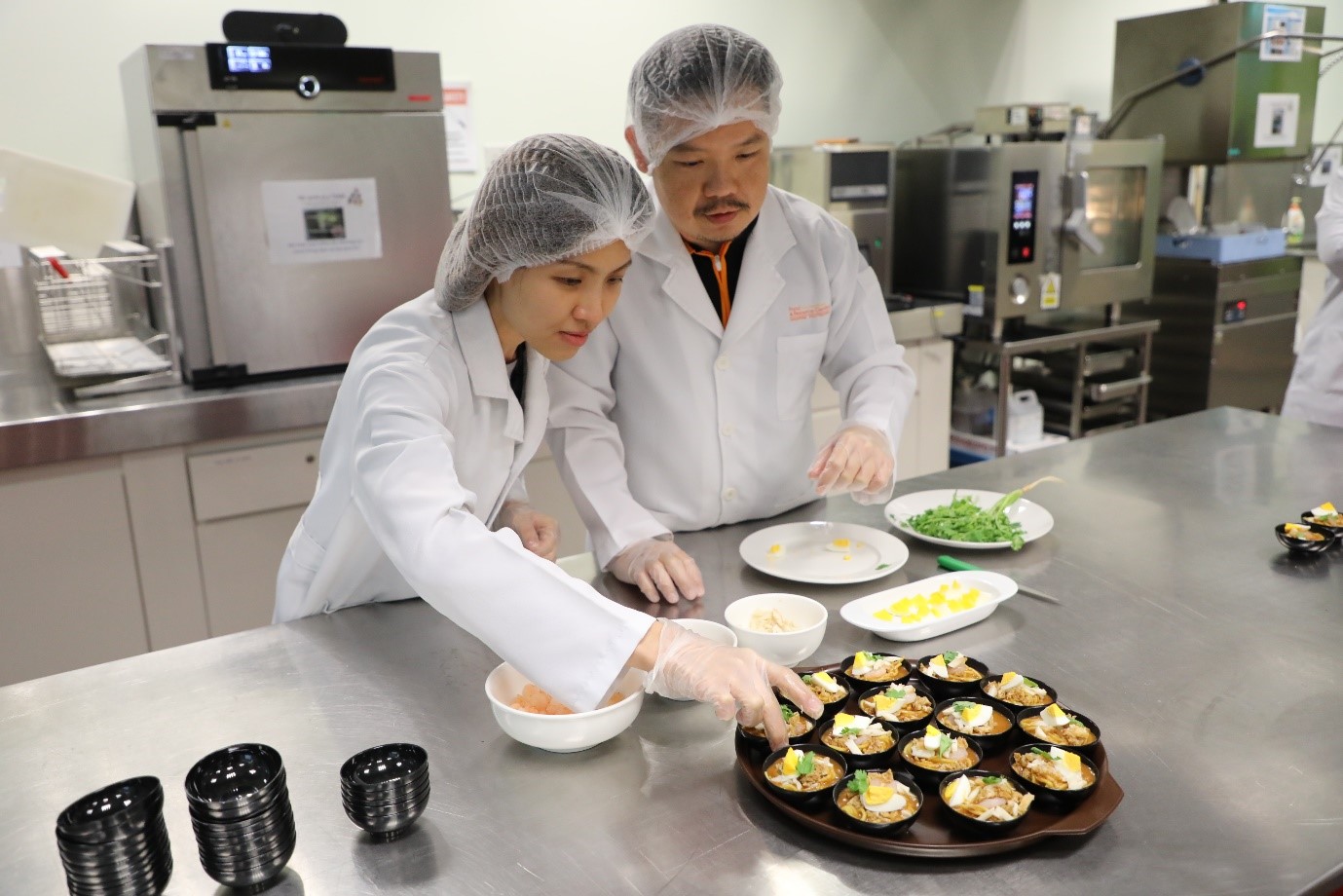Singapore Polytechnic develops fast and cost-efficient technique to help food manufacturing companies test glucose level in food products
27 Nov 2018
Singapore, 27 November 2018 – To support the national fight against diabetes, Singapore Polytechnic’s (SP) Food Innovation and Resource Centre (FIRC) has developed a new technique to help food-manufacturing companies determine the Glycaemic Index (GI) of their food products in a fast and cost-effective manner. This GI is a value assigned to foods based on how quickly they cause an increase in blood glucose levels.
This new technique comes at a time when diabetes is rife, and when food companies in Singapore are constantly seeking ways to offer healthier and lower-GI food products to customers.
Called the Glycaemic Index Speed Test (GIST), it is a lab-based test that measures the GI levels of food by studying the interaction of food products and human enzymes. Using artificial intelligence and machine learning, GIST computes the GI level of food based on three indicators – High GI, Medium GI, and Low GI. The indicators serve to inform food-manufacturing companies of the GI status of their food products during their reformulation process. Reformulation is key to ensuring an adherence to the Health Promotion Board (HPB) Low-GI guidelines, and to offering low-GI food products to customers who are becoming increasingly health-conscious.
The GIST method is a giant leap from current conventional methods used worldwide. Currently, food-manufacturing companies adopt the in-vivo method in their reformulation process. This is a lengthy process that requires the recruitment of volunteers to consume food products and undergo in-vivo protocols (i.e. pricking of the index finger for blood samples), before waiting for months for the GI test results. In comparison, GIST is 73 per cent lower in cost and speeds up the research process by 90 per cent, thereby helping companies to boost productivity and save on research resources.
The FIRC has implemented GIST on a total of 17 projects across eight companies, including Nutrition Innovation and Chinatown Food Corporation Pte Ltd.
Mr Matthew Godfrey, CEO of Nutrition Innovation, says, “GIST rapidly accelerates and monitors the production and quality of our low GI healthier sugar products. Many of our major industrial customers from these diverse markets have now requested to work directly with the team at the FIRC to develop their own low GI food and beverages solutions. We view the FIRC as an essential extension of our collaborative team and as a key centre of excellence and expertise to help us combat diabetes and obesity in Singapore and around the world.”
With GIST, it can also help to classify food options at food eateries, providing members of the public with GI information of their food options and enable them to make more informed food choices. SP plans to roll this out at one of its food courts in early 2019 as a pilot run.
Dr Ken Lee, Senior Manager at FIRC, says, “GIST exemplifies our commitment to leveraging our science and technology capabilities to meet industry and nation demands. We hope to continue bringing food concepts to reality and developing innovative solutions for local and international food-manufacturing companies.”

The GIST technique, developed by SP’s FIRC, helps food-manufacturing companies speed up their reformulation process in order to achieve low-GI food products such as noodles.
For Media Enquiries:
Ms Deanna Bonaparte
Communications Executive
Singapore Polytechnic
T: 6590 2782
M: 9270 1790
E: Deanna_Bonaparte@sp.edu.sg
About Singapore Polytechnic (www.sp.edu.sg)
Established in 1954, Singapore Polytechnic (SP) is Singapore’s first polytechnic. It has 10 schools that offer 40 full-time diploma courses and 3 common entry programmes for close to 17,000 students. SP adopts a proven creative teaching and learning framework and offers students a holistic, authentic and industry-relevant curriculum, innovative and vibrant learning spaces, and enriching overseas programmes.
The Polytechnic is committed to producing competent and versatile graduates who are also imbued with sound values, so that they can be work ready, life ready and world-ready. SP has more than 200,000 graduates and among them are successful entrepreneurs, top executives in multi-national and public-listed corporations, and well-known professionals across various industries and leaders in government.
SP clinched the inaugural ASEAN People’s Award in 2015 for its contributions toward the region’s community-building efforts. SP is also the first polytechnic to be awarded the President’s Award for the Environment in 2010 and the President's Social Service Award in 2011.
Follow SP on Facebook at http://www.facebook.com/singaporepolytechnic and Twitter and Instagram at @singaporepoly.